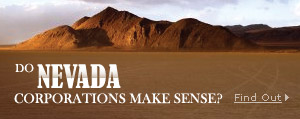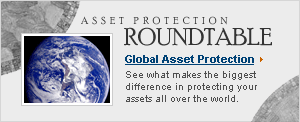What is a Trust?
A trust is the right, enforceable solely in equity, to the beneficial enjoyment of property of which another holds the legal title.
A trust is a legal relationship in which one person (or qualified trust company) ( trustee ) holds property for the benefit of another (beneficiary). The property can be any kind of real or personal property--money, real estate, stocks, bonds, collections, business interests, personal possessions and automobiles. It is often established by one person for the benefit of himself or of another. ??A trust is a fictitious legal entity (not a bricks and mortar entity) that owns assets for the benefit of a third person (beneficiary). It is common to put whole bank and brokerage accounts, as well as homes and other real estate, into a trust.
A trust is a relationship in which a person, called a trustor, transfers something of value, called an asset, to another person, called a trustee. The trustee then manages and controls this asset for the benefit of a third person, called a beneficiary. An asset is any kind of property.
You will find many definitions in different states or different law books. The above meanings all mean the same thing.
How does a Trust work?
Generally a Trust involves at least three people: the grantor (the person who creates the trust, also known as the settlor or donor ), the trustee (who holds and manages the property for the benefit of the grantor and others), and one or more beneficiaries (who are entitled to the benefits).
The Grantor (or settlor) of the Trust is the person who set up and gave money to the Trust. The Trustee of the Trust is the person charged with keeping the assets safe, invested properly, and finally distributed to the Beneficiary at the proper time. The Grantor can decide how the money must be kept (in interest bearing accounts, in real estate, or only in government insured FDIC accounts, etc.), and when it may be distributed. The Grantor of the Trust can also be the Trustee of the Trust, if the Grantor decides to set the Trust up in such a manner (e.g., Grantor sets himself up to be the Trustee of a Trust for his child).
How is a Trust used?
What are the uses of a trust? Trusts have several uses and they can be of much benefit when properly set up and managed. One of the uses of a trust is to provide flexible control of assets for the benefit of minor children. A trust set up for the benefit of minor children can avoid the necessity of further legal proceedings, such as the appointment of a conservator. A conservator is someone who is appointed by the court to control the assets of minor children. Conservators are restricted by law and must be bonded and file annual accountings with the probate court.
Children cannot legally handle their own financial affairs before they reach the age of 18 in Oregon and 21 in other states. One purpose of creating a trust for a child is to assure the trustor that the child will be benefited but will not have control of the trust assets until the child is older. In establishing a trust, the trustor selects a trustee and specifically instructs the trustee on how the assets will be used for the beneficiary. A trust for the benefit of minors often takes effect when both parents have died. It is usually set up to provide for the support, care and education of the children until they have reached the age set by their parents to actually receive the assets being held by the trustee.
Putting property in trust transfers it from your personal ownership to the trustee who holds the property for you. The trustee has legal title to the trust property. For most purposes, the law looks at these assets as if they were now owned by the trustee. For example, many trusts have separate taxpayer identification numbers. But trustees are not the full owners of the property. Trustees have a legal duty to use the property as provided in the trust agreement and permitted by law. The beneficiaries retain what is known as equitable title, the right to benefit from the property as specified in the trust.
The donor may retain control of the property. Putting assets "in" a trust does not mean that they change location. Think of a trust, instead, as an imaginary container. It is not a geographical place that protects your car, but a form of ownership that holds it for your benefit. On your car title, the owner blank would simply read "The Mr. Jones Trust."
After your trust comes into being, your assets will probably still be in the same place they were before you set it up--the car in the garage, the money in the bank, the land where it always was--but it will have a different owner: the Mr. Jones Trust, not Mr. Jones.
If you think you would benefit from a Trust call Trustmakers for a free 20-minute consultation or click here and take our risk survey .

WHAT IS A TRUST

EDUCATION PRODUCTS

Asset Protecion Training
If you are looking for the most important concepts in Asset Protection, this is where to start! If you need to talk intelligently about protecting your net worth or you are a professional this online training program is for you!

Free Asset Protecion Course
Get our Free Online Asset Protection Video Course.
Learn how to protect yourself like the pros!


Asset Protection in a Nutshell
Clear, concise and straight forward, this e-Book will help you make sound decisions with your business and personal assets..

Protecting Assets - 70+ Video Lessons + 3 Ebooks
This e-course will give you straight forward asset protection advice you can implement now. One of the best asset protection courses available! Includes 70+ video lessons, 3 Ebooks, and 6 example legal documents!

Advanced Estate Planner
The key to a solid Asset Protection Plan is the Estate Plan. This downloadable estate organizer will help you keep track of important information about your assets and important legal documents all in one place.
















